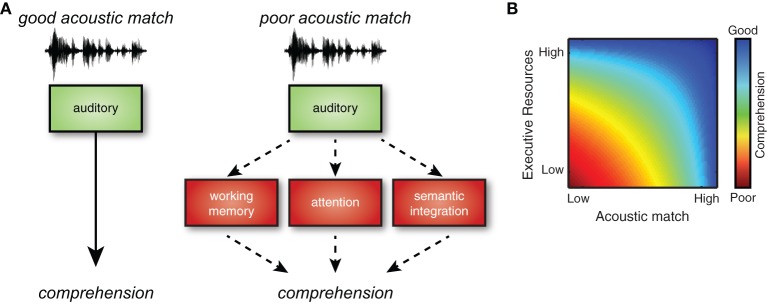Figure 1.

(A) Speech signals that match listeners' perceptual expectations are processed relatively automatically, but when acoustic match is reduced (for example, due to noise or unfamiliar accents), additional executive resources are needed to compensate. (B) Executive resources are recruited in proportion to the degree of acoustic mismatch between incoming speech and listeners' representations. When acoustic match is high, good comprehension is possible without executive support. However, as the acoustic match becomes poorer, successful comprehension cannot be accomplished unless executive resources are engaged. Not shown is the extreme situation in which acoustic mismatch is so poor that comprehension is impossible.
